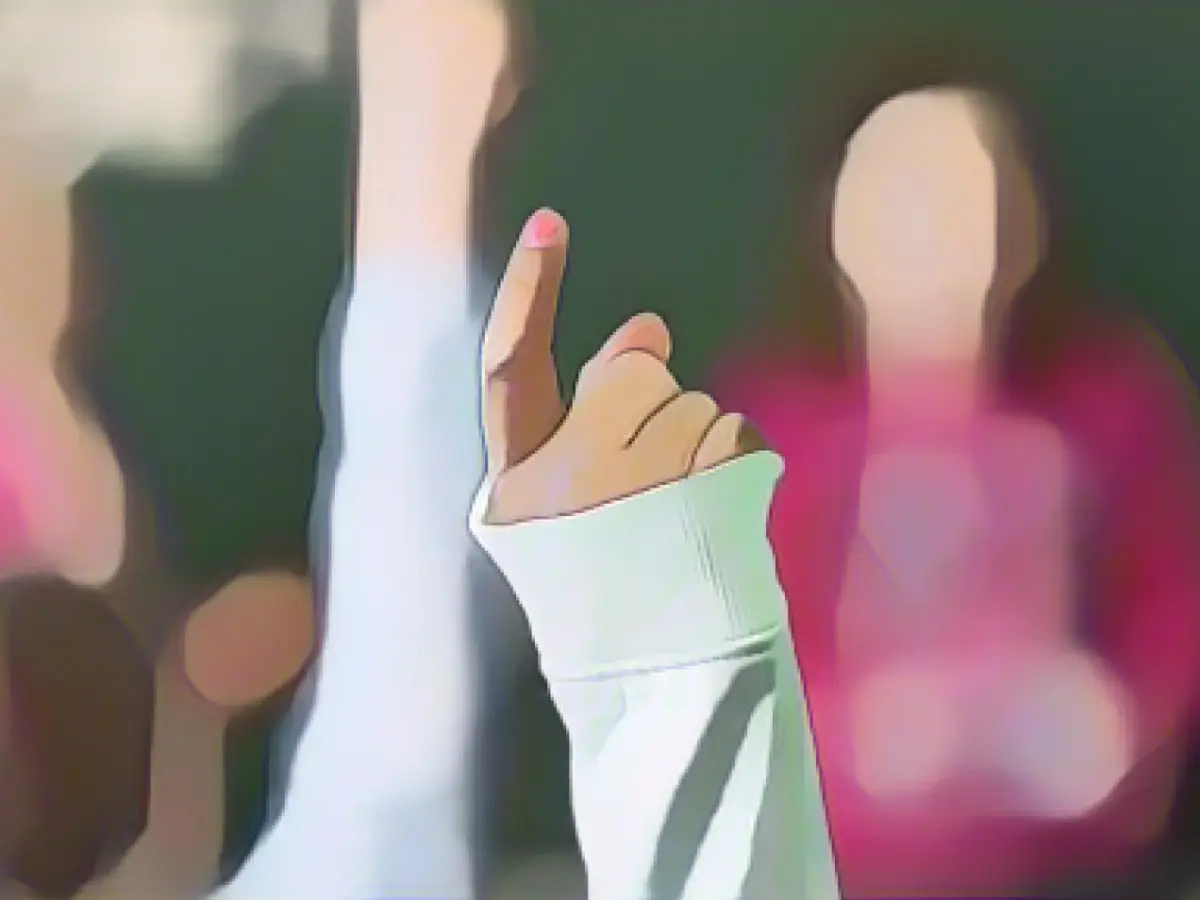Education - GEW calls for more specialists for primary and special schools
GEW head Klaus-Peter Hammer is calling for more support for pupils from structurally disadvantaged backgrounds in Rhineland-Palatinate. "Even 25 years after the first Pisa shock, it has not been possible to tackle this problem on a massive scale and take measures that also help," said the head of the Education and Knowledge Union (GEW) to the German Press Agency in Mainz.
"In my view, schools need more staff," explained Hammer. This is not just about teachers, but about multi-professional teams with school social workers who support the schools in their educational work and also the children and young people. However, tackling this problem is also a task for society as a whole. Other players in the social sector must also be involved, such as the local authorities, but also the ministries of social affairs, employment and family.
The union leader referred to the positive experiences and results of the "First Class" project at the Gräfenau elementary school in Ludwigshafen. "We should build on this." If the teachers are not alone in the classroom, but have support from student teachers, for example, this would be a great help. "It would be very helpful if the classes were double-staffed with teachers and other educational staff, at least in some phases."
At the elementary school in the second-largest city in Rhineland-Palatinate, 39 of the 126 first-graders had to repeat the school year. Many children at the school still speak little German or come from educationally disadvantaged families. Many of the children concerned had only attended a German kindergarten for a short time or not at all. The Gräfenauschule also has a focus on inclusion children.
As a result, the Ministry of Education launched the "First Class" project together with the RPTU Landau, in which students at the Ludwigshafen school provided targeted encouragement and support to children starting school for six weeks from the start of the school year. The focus was on three main areas: promoting language skills, basic mathematical skills and fine motor skills such as holding a pencil.
However, the most pressing problem in schools is the shortage of specialists, Hammer reported. In Rhineland-Palatinate, this applies in particular to primary and special schools, secondary schools plus and special schools. The state government has taken measures to ensure that it will be possible to study to become a special school teacher in Koblenz in the future. However, it would still take a long time for teachers to complete their training and that alone would not be enough: The number of teachers who will soon be retiring is large. In addition, the number of pupils is rising again.
The chairman of the education union therefore called for more initiatives to make the teaching profession and Rhineland-Palatinate as a location for education more attractive. The pay of primary school teachers should not be a taboo subject. In the neighboring states of Hesse and Rhineland-Palatinate, for example, an increase in salaries has been decided.
Cornelia Schwartz, Chairwoman of the Rhineland-Palatinate Philologists' Association, also called for the teacher shortage and teaching absenteeism to be tackled as a matter of urgency. There is indeed a great need to change the course of education policy in Rhineland-Palatinate. For example, there needs to be a healthy mix in the textbooks, from pure exercises to consolidate and automate to creative tasks. In addition, more attention should be paid to a good foundation in elementary school and kindergarten than in previous years. The Philologists' Association represents the interests of grammar school teachers in the state.
Read also:
- A clan member is punished here
- Traffic lawyer warns: Don't talk to the police!
- Will he be convicted as Jutta's murderer after 37 years?
- He also wanted to kill his cousin
- The issue of supporting children from structurally disadvantaged backgrounds in schools has been a concern for GEW head Klaus-Peter Hammer in Rhineland-Palatinate, despite the 'Pisa shock' occurring 25 years ago.
- Hammer believes that schools need more staff, not just teachers, but also multi-professional teams including school social workers, to support their educational work and the children and young people.
- The positive results of the "First Class" project at the Gräfenau elementary school in Ludwigshafen have showcased the importance of double-staffing classes with teachers and other educational staff.
- The Gräfenauschule in Mainz, the second-largest city in Rhineland-Palatinate, has a significant number of children needing extra support, with 39 first-graders repeating the school year and many coming from educationally disadvantaged families.
- The Ministry of Education launched the "First Class" project in cooperation with the RPTU Landau to provide targeted encouragement and support to school starters, focusing on improving language skills, mathematical skills, and fine motor skills.
- According to Hammer, the most pressing problem in schools is the lack of specialists, particularly in primary and special schools, and secondary schools plus and special schools, in Rhineland-Palatinate.
- The GEW leader called for more initiatives to make teaching a more attractive profession and Rhineland-Palatinate an attractive location for education, including addressing the taboo topic of teacher salaries.
Source: www.stern.de








